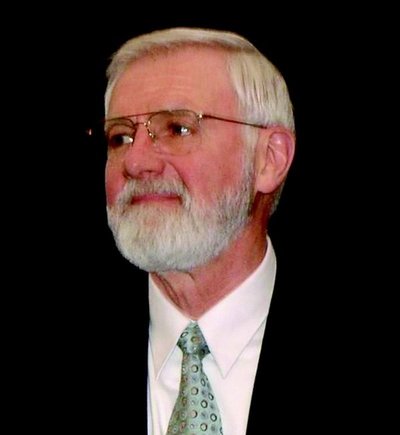May 17, 2007
William Foege to present Rushmer Lecture June 7
By Anita Wahler
Department of Bioengineering
Dr. William Foege, whom former President and Nobel Peace Prize Laureate Jimmy Carter called a “hero” in global health, will speak at the 19th annual Rushmer Lecture, sponsored by the UW Department of Bioengineering.
Combining Art and Science for a Rational Future will be presented on Thursday, June 7, in Hogness Auditorium from 4 to 5:20 p.m. The talk will explore how creative technology might help all people participate in designing their destinies. The lecture and the reception that will follow at 5:30 p.m. in the Foege Bioengineering Building lobby are open to everyone.
Foege is perhaps best known as the man who led the war against smallpox, which resulted in the disease’s total eradication in 1975. He became director of the U.S. Centers for Disease Control (CDC) in 1977, helping save the lives of millions through efforts to wipe out devastating diseases and encourage childhood immunizations. After directing the CDC, he served from 1986 to 1992 as executive director of The Carter Center, which addresses global issues of democracy, human rights, disease, hunger, and conflict. Foege continues now as a Carter Center fellow and as executive director of the Task Force for Child Survival, which he helped form to promote immunization and health worldwide. He is also emeritus presidential distinguished professor of international health at the Rollins School of Public Health, part of Emory University.
With a medical degree from the UW School of Medicine and a master’s of public health from Harvard, Foege helped set the direction of the Bill and Melinda Gates Foundation, which is a major supporter of efforts to improve health in developing countries. The Gateses chose Foege as the namesake for the UW’s new Bioengineering and Genome Sciences Building to honor him for his vision and commitment. “As our friend he’s been a mentor for the entire global health team,” Bill Gates said at the building dedication ceremony in spring 2006. “Our program wouldn’t be anything like what it’s been without his presence.” Carter, also present for the ceremony, said Foege is one of the most influential advocates and consensus builders in all of international health.
Through lectures and writings on medical ethics, preventive medicine, injury control, child survival and development, and the harmful effects of tobacco use, Foege works to broaden public awareness and increase attention to these issues in domestic and international health policies.
Bioengineering’s annual lecture was endowed in 1985 to honor Dr. Robert F. Rushmer, an extraordinary mentor and trailblazer who founded the UW Center for Bioengineering in 1967. The Center became the Department of Bioengineering, administered through the School of Medicine and the College of Engineering, in 1997. Rushmer’s efforts also affected the local biomedical industry, the UW technology transfer process, and the Washington Research Foundation.
Rushmer was widely recognized for his groundbreaking work in ultrasound, physiology, and cardiac research. He died in 2001 at the age of 86.



